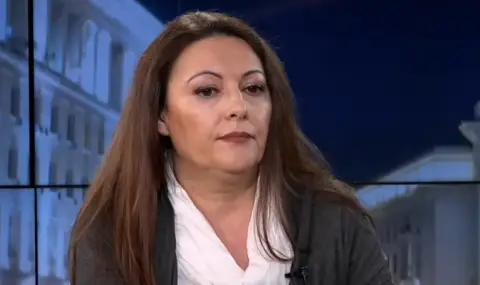The mutual blockade between GERB-SDS and PP-DB is a zero-sum game for both formations. This was stated to the BNR by Elena Darieva - manager of the sociological agency "Nasoka". and collective member of the Bulgarian Sociological Agency.
"The strategy to mobilize and incite the party cores and those supporting these coalitions at this pre-election moment is understandable, but the measure should not be lost, because then the talks become very difficult. The power conundrum will be complex, especially if the new parliament is even more fragmented, as is expected. The more numerous the pieces, the more difficult it is to arrange the puzzle. Knowledge, wisdom and culture are required," she commented.
In the show "Above all" the sociologist emphasized that at least 3 formations gravitate around the 4 percent barrier. According to her, 1 or 2 have the potential to skip it. If 2 of them skip it and it ends up being a 9-party parliament, this reflects on the mandates that each party takes, she pointed out and explained that then the first suffers the most damage.
According to her, the differences that are being reported at the moment do not allow to say with certainty who would finish in the second position on the evening of the 27th, after the announcement of the end of the election day. The difference is within statistical error, she said, adding that there are many factors that go either way.
"On the one hand, in the field in which "Revival" has positioned itself, we notice an increasingly sharp and fierce competition between different political subjects who are fighting for this vote. This vote has an emotional-punitive component that is quite difficult to grasp. "Revival" they manage to mark some kind of mobilization at the end of the campaign, on the day of reflection and on the day of the vote itself," Darieva noted. And continued his comment:
"On the other hand, with the PP-DB, whose electorate is consolidated in a niche where there is no such fierce competition - they are the only winner of this vote, their goal is to manage to mobilize their voters and to get them to come out and vote".
The sociologist recalled the disappointment of PP-DB voters from the failure of the rotation and the partnership with GERB.
In her words, the campaign is oriented towards the hard cores, but after 3 years of lying, they have become "much more sensitive and reactive". According to her, the political elite felt this. For this reason, they began to discuss future coalitions and plans rather cautiously, she expressed her opinion.
Elena Darieva does not allow that there can be anyone else in the second position, except PP-DB or "Vazrazhdane". According to her, DPS-New beginning will not go to the second place. She believes that we cannot expect any unprecedented jump.
The sociologist specified that the data that sociologists collect and publicize are based on research that is carried out on the territory of the country. We do not capture votes abroad, she pointed out. According to her, about 50,000 votes came from Turkey. And with this low voter turnout, these votes can have an impact on the overall result, Darieva warned.
She emphasized that the responsibility of the sociologist is very great both in collecting the empirical data and in their interpretation in the media environment. The information submitted by the sociological agencies has its influence and impact on the socio-political attitudes of the voters, she was categorical. And he assured that all agencies properly and strictly publicize the methodology of the conducted studies.
"When we publicize data from empirical studies, we pay attention to the fact that this is a snapshot and that it cannot be mechanically extrapolated to the data that the CEC reports on election day, because the picture has not frozen. And this campaign, which on the surface seems calm, has very significant dynamics and processes underneath that affect the final result that is reported".
According to her, it is purely speculative to transfer to sociologists the responsibility for what politicians do not finish:
"If there is someone who is responsible for being able to mobilize, inspire, get people out on the 27th to go vote and do it convincingly, it is the responsibility of the political forces. I do not accept the accusations that this is transferred to sociologists and researchers of social processes.
